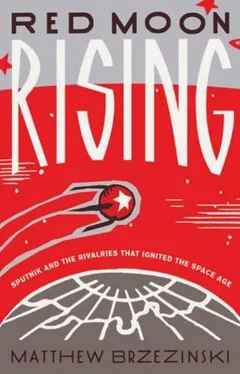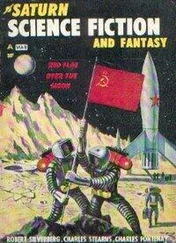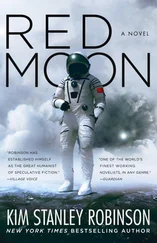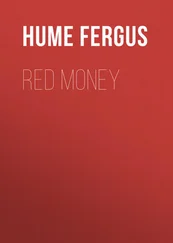Khrushchev’s car led the convoy, as befitting his new rank as first among equals in the Presidium, as the Politburo was then known. But the men in the rear were crowding his bumper, biding their time for an opportunity to overtake him. This Khrushchev knew, understood almost instinctively, from the survival skills he had honed during two treacherous decades in Stalin’s inner circle. When the “boss” was alive, they had all vied for his favor, slid tomatoes onto each other’s chairs in prank-filled drinking contests that lasted till dawn. Like sixty-year-old frat boys, they all laughed when Lavrenty Beria, the secret police chief and serial rapist, pinned little notes with the Russian word prick spelled in big Cyrillic letters on Khrushchev’s unsuspecting back. But the day the boss died, the jokes ended and the plotting began. This Khrushchev also knew from personal experience, for it was he who had masterminded the coup against the psychopath Beria. Stalin’s chief henchman and self-anointed successor had been dispatched with a bullet to the brain, and it was Khrushchev, the class clown of this murderous fraternity, who had unexpectedly emerged to fill the power vacuum.
The convoy sped north unimpeded by traffic, since so few Muscovites owned cars. A few rickety Moskviches, twenty-six-horsepower knockoffs of the 1938 Opel Kadett, quickly clattered out of the way, and soon Khrushchev and his retinue reached the new suburbs. These vast tracts of land around the capital were also being completely remade. The little wooden dachas and garden plots that supplemented the diet of city dwellers were being bulldozed in accordance with the latest Five Year Plan to allay the capital’s dire housing shortage. In Moscow, divorced couples still often lived together in communal apartments with three other families. Government workers and newlyweds were housed in dormitories where toilets and kitchens were divvied up on a time-share basis. For those without blat —connections—the waiting list for new apartments could stretch into the decades. People got married while still in their teens just to get in line. The situation was much the same throughout the Soviet Union, and even more drastic in the western parts of the country, where entire cities had been reduced to rubble during the war.
To remedy the housing shortage, Khrushchev had embarked on a massive national construction binge, which, like Stalin’s oppressive overhaul of Moscow’s downtown districts, was leaving its own unique architectural imprint on the city’s outer rings. But the suburban building boom looked nothing like the Levittown planned communities sweeping across America, where the appetite for new homes seemed just as insatiable and the explosion of affordable automobiles was changing the way people lived. Outside Moscow, there were no ranch houses and ramblers with circular driveways branching off cul-de-sacs. There were no swimming pools in gated backyards; no children’s playgrounds with baseball diamonds and swings. Instead, row after row after row of mind-numbingly identical five-story apartment buildings rose from the sandy soil, resembling the ill-conceived housing projects that would later blight America’s ghettos. Large numbers—1 through 50, 51 through 75, and so on—were painted on the sides of the squat concrete structures, so that residents could tell them apart. Not a blade of grass grew in between the prefabricated buildings of this suburban wasteland, and there were no stores, shopping centers, or movie theaters. There were only bus stops that led to the nearest commuter train station and cranes leaning over the open pits of unfinished units.
Quantity, not quality, was the construction crews’ rallying cry, and the “Khrushchevki,” or Little Khrushchevs, as the dwarfish blocs quickly became known, howled when the winds blew in from the Urals. They suffered from shifting foundations and perennially creaky plumbing. Their gas lines exploded and their roofs leaked. But they met Kremlin quotas, and Khrushchev was immensely proud of them. Just the other month, he had taken Sergei on a tour of the cement factory that made their prefabricated parts.
On this day, Sergei was also accompanying his father on an inspection tour. The favorite of Khrushchev’s four children, Sergei, at twentyone, already stood a head taller than his dad, whom a French official once described as a “little man with fat paws.” (Khrushchev himself poked fun at his diminutive stature, joking that he was as wide as he was tall.) Sergei had his mother’s looks, blond hair and blue eyes. Nikita had darker, vaguely Asiatic features, though what little hair remained on the elder Khrushchev’s head had long ago turned white, leaving only a narrow band to warm his bald pate. Unlike his father, whose loquacious, self-deprecating sense of humor made him a favorite at Stalin’s court (and lulled his enemies into a false sense of superiority), Sergei was a serious, studious lad, on his way to fulfilling his father’s dream of becoming an engineer. The elder Khrushchev had had only four years of formal schooling before beginning his apprenticeship, at the age of fourteen, as a metalworker in a prerevolutionary Ukrainian coal mine owned by a Welsh millionaire. “After a year or two of school, I had learnt how to count to thirty and my father decided that was enough,” Nikita Khrushchev recalled in his memoirs. “He said that all I needed was to be able to count money, and I would never have more than thirty rubles to count anyway.”
Khrushchev’s lack of education was a sore point, a source of embarrassment and frustration—not only to him but to the party as well. The leaders of the revolution had been learned men: Trotsky, Bukharin, the lawyerly Lenin. Even Stalin had studied in a seminary before finding Marx. But in the Soviet version of upward mobility, the next generation of Communist Party functionaries had risen from the bottom of the proletariat, sons and daughters of the peasantry suddenly catapulted into the twentieth century, as Khrushchev himself conceded with remarkable candor. “We weren’t gentlemen in the old-fashioned sense,” he wrote in his memoir, recalling his wartime stay at the estate of a Polish nobleman. “It became impossible to enter the bathroom. Why? Because the people in our group didn’t know how to use it properly. Instead of sitting on the toilet seat so that people could use it after them, they perched like eagles on top of the toilet and mucked up the place terribly. And after we put the bathroom out of commission, we set to work on the park grounds.”
Throughout his late twenties and thirties, Khrushchev had struggled to better himself, attending the Rabfak high school equivalency programs offered to rising party functionaries and enrolling in special courses at the Stalin Industrial Academy for promising technocrats. But party business always interfered, and he never managed to finish any of them. “He could barely hold a pencil in his calloused hand,” one of his teachers later told the biographer William Taubman. “She recalled his struggling to grasp a point of grammar and, when he at last understood it, smiling and shouting, ‘I got it.’”
Sergei was thus on the cusp of fulfilling his father’s unrealized dream. In a few months he would defend his master’s thesis and become a full-fledged engineer. “My father felt this was the best, most honorable profession a man could have,” he recalled fifty years later. “In technical matters, he was very creative and curious.”
Khrushchev’s passion for technology could at times lead to childlike bursts of enthusiasm, and whenever state business took him to a plant or research facility of technical interest, he brought Sergei. “He wanted me to see the theories I had been learning at university applied in practice,” Sergei recalled. The two had recently gone to the Tupolev factory to inspect the first Soviet jet-engine passenger plane, and Nikita had boyishly rubbed his hands in glee at the prospect of impressing foreigners with it on his next trip abroad.
Читать дальше












